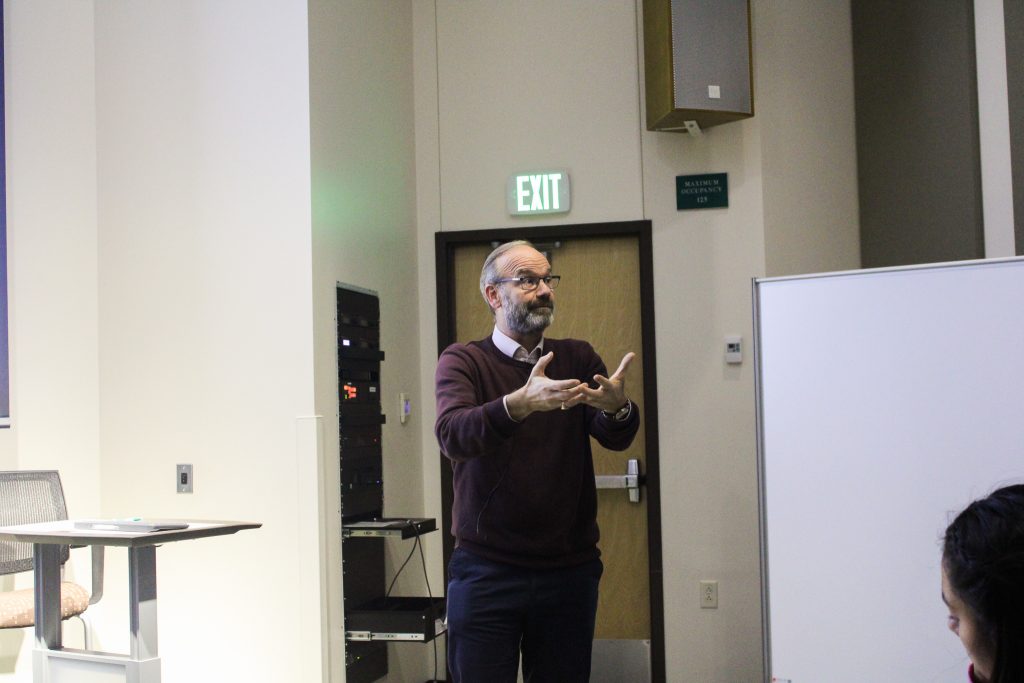The Human Rights Institute hosted Todd Landman — a political science professor from the University of Nottingham — to discuss modern slavery and the methods used to combat it.
The lecture, held in the Admissions building on Tuesday, discussed the importance of data collection in the fight against slavery. There is no one legal definition for modern slavery — although international law has evolved over the past century to prohibit slavery and other forms of exploitation. The U.S. Department of State recognizes that modern slavery includes sex trafficking, debt bondage, child labor and involuntary servitude.
Landman is the research director of the Rights Lab at Nottingham, which collects data on modern slavery. The lab runs four programs, each concentrating on different elements related to enslavement, including the geographical reach, health effects and economic impact of modern-day slavery while investigating national and global gaps in anti-slavery laws.
He began the lecture by providing a current estimate for the number of people enslaved today — around 50 million — referencing a 2022 United Nations report indicating that millions worldwide are subjected to forced labor or marriage. He said “ending modern slavery requires robust and systematic analysis across multiple disciplines,” like the work done by the Rights Lab.
The largest group of modern slavery researchers, the Rights Lab works with several universities, including Binghamton University, to create evidence-based strategies to end slavery. Target 8.7 of the U.N.’s Sustainable Development Goals — a comprehensive 17-goal list adopted in 2015 that acts as a “shared blueprint for peace and prosperity for people and the planet” — calls for ending modern slavery, human trafficking and child labor. Landman and David Cingranelli — a political science professor at BU and co-director of the Human Rights Institute — formed a partnership between their departments to create funding proposals and participate in international collaborative research.
“We are ultimately motivated by our commitment to the advancement and protection of human rights,” Landman said.
During the lecture, Landman emphasized that people who have experienced a form of slavery should not be referred to as victims but as survivors. These survivors are actively engaged in the research that the Rights Institute does. Landman said he was proud to be the internal examiner on a doctoral thesis that a survivor wrote.
He added that the data the Rights Lab collects is not just represented by numbers on paper but by real people stuck in these exploitative systems, referencing a project in the Philippines where data collection and money tracking were used to oust child pornography in the country. The study was presented to the U.S. Congress and resulted in the drawing of legislation ensuring companies like Venmo and LinkedIn are not used for illegal activity. The project was recognized by the president of the Philippines and acknowledged as a potential solution to child pornography in the country.
The Right’s Lab’s relationship with governments varies, Landman said, as some of them are not forthcoming with data about modern slavery in their country.
“Some governments are not yet ready to admit there is an issue or recognize that there is an issue and do something about it,” Landman said. “Others have pledged themselves in international frameworks and therefore need our expertise, so it’s a bit of both.”



